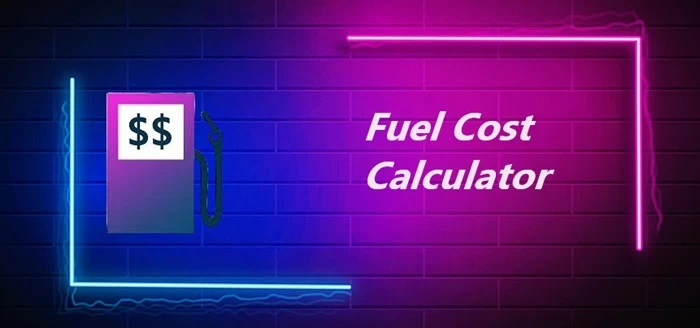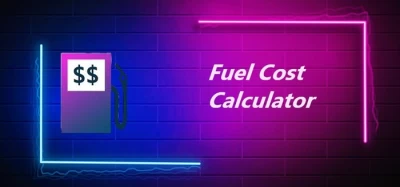Fuel Cost Calculator - Map Your Journey and Compute Fuel Expenses
Empower your journeys with expert advice on fuel economy and discover how small changes can lead to significant savings. Start your fuel-saving journey today!

A Fuel Cost Calculator is a valuable tool designed to assist individuals and businesses in estimating and managing their fuel expenses. This user-friendly tool takes into account various factors such as fuel efficiency, distance travelled, and current fuel prices to provide accurate cost projections. Users can input details such as vehicle type, fuel consumption rates, and the intended journey's distance to receive a comprehensive breakdown of the anticipated fuel costs. This information proves invaluable for budgeting purposes, allowing users to plan and optimize their transportation expenses.
Factors Affecting Fuel Prices
Taxing Gasoline
Governments might step in and put taxes on gasoline (also known as petrol in some places). This can make the prices go up for people, whether they're in that country or not. Sometimes, the government also gives money to specific industries to help them out, and this is called a subsidy. When products or services get this kind of support, they can be sold at lower prices.
Financial Markets
The price of oil around the world is constantly changing. People keep an eye on critical types of oil, like Brent and West Texas Intermediate (WTI), and they measure it in US dollars per barrel. The price you pay for gas at the pump is connected to how the global oil price goes up and down.
Leaders and Policies
Politics, like the way a government is structured, the people in charge, and important events, can mess with the cost of fuel. For example, if a leader who doesn't believe in climate change gets replaced by someone who does, it could change the rules on fuel prices. Countries also have relationships with each other, and these can lead to war or partnerships for trading. Both of these situations can mess with fuel costs.
Geographic Area
Some places in the world have lots of oil, while others don't have any. If you live close to where there's lots of oil, your fuel costs might be lower. But if you're in a spot without oil and it's hard to get fuel in, like on an isolated island, it might be more expensive.
Disasters and Weather
Natural disasters like earthquakes, tsunamis, hurricanes, and big floods can mess with making an moving gasoline. Imagine a snowstorm closing roads or a storm damaging an oil refinery - that can stop the production of fuel and make the prices go up. Mother nature can be a wild card in the cost of fuel.
Some Tips to Save Your Vehicle's Fuel
- Easy on the Gas
Wait to press the gas pedal too hard. Start slow and accelerate gently. It's like giving your car a smooth ride.
- Keep a Steady Speed
When you're cruising, try to keep a steady speed. It helps your car sip fuel instead of guzzling it.
- Easy on the Brakes
Don't slam on the brakes unless you really have to. Slow down gradually. It's kinder to your gas tank.
- Lighten the Load
Don't carry around stuff you don't need in your car. Less weight means less work for your engine, and that means less fuel used.
- Keep Your Tires Happy
Make sure your tires are properly inflated. Low tire pressure can make your engine work harder, using more gas.
- Regular Check-ups
Keep your car in good shape with regular check-ups. A healthy car is a happy car and uses less fuel.
- Plan Your Trips
Combine errands so you're not driving all over the place. It saves time and gas.
- Turn Off the Engine
If you're parked for a while, like waiting for someone, turn off the engine. Idling uses more fuel than you think.

A Fuel Cost Calculator is a valuable tool designed to assist individuals and businesses in estimating and managing their fuel expenses. This user-friendly tool takes into account various factors such as fuel efficiency, distance travelled, and current fuel prices to provide accurate cost projections. Users can input details such as vehicle type, fuel consumption rates, and the intended journey's distance to receive a comprehensive breakdown of the anticipated fuel costs. This information proves invaluable for budgeting purposes, allowing users to plan and optimize their transportation expenses.
Factors Affecting Fuel Prices
Taxing Gasoline
Governments might step in and put taxes on gasoline (also known as petrol in some places). This can make the prices go up for people, whether they're in that country or not. Sometimes, the government also gives money to specific industries to help them out, and this is called a subsidy. When products or services get this kind of support, they can be sold at lower prices.
Financial Markets
The price of oil around the world is constantly changing. People keep an eye on critical types of oil, like Brent and West Texas Intermediate (WTI), and they measure it in US dollars per barrel. The price you pay for gas at the pump is connected to how the global oil price goes up and down.
Leaders and Policies
Politics, like the way a government is structured, the people in charge, and important events, can mess with the cost of fuel. For example, if a leader who doesn't believe in climate change gets replaced by someone who does, it could change the rules on fuel prices. Countries also have relationships with each other, and these can lead to war or partnerships for trading. Both of these situations can mess with fuel costs.
Geographic Area
Some places in the world have lots of oil, while others don't have any. If you live close to where there's lots of oil, your fuel costs might be lower. But if you're in a spot without oil and it's hard to get fuel in, like on an isolated island, it might be more expensive.
Disasters and Weather
Natural disasters like earthquakes, tsunamis, hurricanes, and big floods can mess with making an moving gasoline. Imagine a snowstorm closing roads or a storm damaging an oil refinery - that can stop the production of fuel and make the prices go up. Mother nature can be a wild card in the cost of fuel.
Some Tips to Save Your Vehicle's Fuel
- Easy on the Gas
Wait to press the gas pedal too hard. Start slow and accelerate gently. It's like giving your car a smooth ride.
- Keep a Steady Speed
When you're cruising, try to keep a steady speed. It helps your car sip fuel instead of guzzling it.
- Easy on the Brakes
Don't slam on the brakes unless you really have to. Slow down gradually. It's kinder to your gas tank.
- Lighten the Load
Don't carry around stuff you don't need in your car. Less weight means less work for your engine, and that means less fuel used.
- Keep Your Tires Happy
Make sure your tires are properly inflated. Low tire pressure can make your engine work harder, using more gas.
- Regular Check-ups
Keep your car in good shape with regular check-ups. A healthy car is a happy car and uses less fuel.
- Plan Your Trips
Combine errands so you're not driving all over the place. It saves time and gas.
- Turn Off the Engine
If you're parked for a while, like waiting for someone, turn off the engine. Idling uses more fuel than you think.
Conversation
Latest Blogs
© Blog CoolCalculator, Explore CoolCalculator, your destination for the latest insights, tips, and updates on the world of online calculators. Stay informed and make your calculations smarter with our blog. ,
Designed
by Saad Media Team , Team Lead M.Rizwan Akhtar












